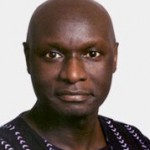Govt attacks Otunnu’s London policy launch
By Dennis Otim 23rd–29th Aug 2010
The NRM government has taken serious issue with UPC President Dr. Olara Otunnu’s decision to launch his 10 Point “Radical Renewal” Agenda in London as opposed to doing it in Uganda before the Ugandan electorate.
Uganda Correspondent exclusively reported last week that perhaps for the very first time, Dr. Olara Otunnu, in a two hour speech to hundreds of Ugandans in London on Saturday 14th August, had set out his 10 Point “Radical Renewal” Agenda for Uganda. Reacting to the news of Otunnu’s London policy launch, NRM Deputy Spokesperson Mr. Ofwono Opondo attacked the UPC President for choosing to launch his agenda for Uganda outside Uganda. “So Mr. Olara Otunnu fails to make any in-print back home and goes to mesmerise a London audience. Well, perhaps 500-600 [people] with another 100 left without seats are greater than the 31 million back here where 15million have registered to vote and only 3 percent seem to know Otunnu”; Opondo said.
Mr. Ofwono Opondo, speaking as always on behalf of the ruling NRM government, also seemed to suggest that Otunnu was insensitive to make such a major policy speech to a constituency of Ugandans that has little or no impact over the outcome of elections in Uganda. “…Ugandans currently in exile will not be the determinants of our 2011 election; never. Firstly, because they won’t vote! Secondly, few of them shape political opinion back here. Thirdly, many are unknown back here. Fourthly, they need money to live on”; said Ofwono Opondo.
Interestingly, during the question and answer session that followed Dr. Otunnu’s London speech, veteran Ugandan Journalist and former Uganda Police Spokesman Mr. Oballel Omoding had challenged Dr. Olara Otunnu to take up the issue of the disenfranchisement of Ugandans in the Diaspora during elections.
Mr. Omoding had reasoned that although Ugandans in the Diaspora contribute millions of dollars to Uganda’s economy every year through remittances, it was scandalous that the NRM government had failed to recognise their contribution by rejecting calls to allow them to vote in Ugandan elections. Why should citizens from young Baltic states and citizens from countries like Iraq, South Africa, Rwanda etc be allowed to vote and Ugandans not; Omoding wondered.
On the question of “accountability for the past” atrocities that Otunnu talked about in his speech, Ofwono Opondo wondered whether Olara Otunnu knows “…exactly when that “past” starts and ends. Surely, we won’t let him alone define what that past is. It is colonialism, UPC I and II, Idi Amin, and surely the most primitive tribal military junta 1985/86 during which Otunnu served as the most eloquent diplomat at the UN and as foreign affairs minister”; Opondo charged.
He further added that Ugandans who never ran away even in times of crisis know where Uganda has come from and know that it is surely moving positively for the better. Opondo’s final advice to Otunnu is that he should “…settle down and perhaps rebuild UPC for 2021 when it could be a third or fourth force [in Ugandan politics]; and only if NRM fails itself. As for UPC, never again in state power soon”; Opondo decreed.
Mr. John Osuku, one of Dr. Otunnu’s close confidants however, thinks he knows exactly why Museveni’s government is so concerned about Otunnu’s activities. “I am not surprised that the government finds it impossible to ignore Olara Otunnu. He is a breath of fresh air in Ugandan politics and he poses a very real threat to Museveni’s illegitimate stranglehold on power. That is why they watch, listen, and analyse his every move”; Mr. Osuku said.
![]()


